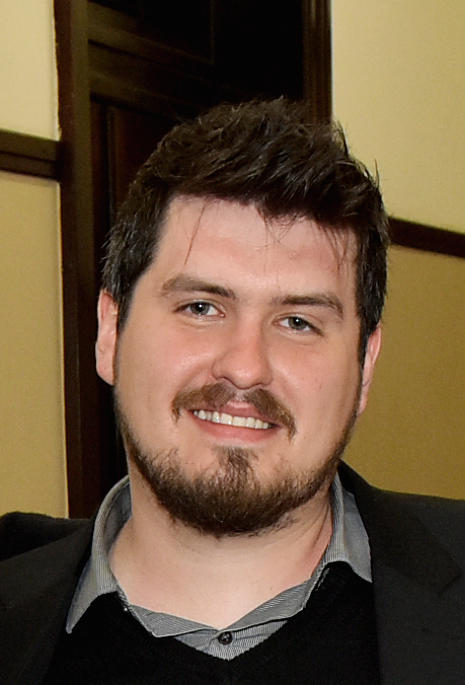Ricardo J. Gonçalves, exchange student at the Latin American Institute
At which university do you study and what?
In 2018 I started my PhD in philosophy and general legal theory at the Universidade de São Paulo. Before, I also did my master's degree there. During my studies I was for a stay abroad at the Latin American Institute of the Freie Universität Berlin.
I am studying the intellectual tradition of critical theory (Frankfurt School), especially the works "Kampf um Anerkennung" by Axel Honneth and "Faktizität und Geltung" by Jürgen Habermas.
How did you come up with the idea of studying in Germany and why did you choose the Freie Universität Berlin?
I always wanted to study in Germany. The German philosophical tradition has always inspired me a lot. My field of research is the philosophy of law. In this context, I got to know many ideas of classical and contemporary German philosophers. Authors like Nietzsche, Hegel, Kant, Marx, Weber have always accompanied me in my law studies.
As soon as I started my master's program, I thought about spending some time outside the country, preferably in Germany. My student advisor recommended Professor Sérgio Costa of the Freie Universität Berlin, who also works on topics related to the critical theory and social inequalities in Brazil and Latin America. Both topics fit my research. I then applied for a scholarship from the Funding Agency of the State of São Paulo, Fundaçao de Amparo à Pesquisa do Estado de São Paulo (FAPESP).
Who or what helped you with your preparations for your stay at the Freie Universität Berlin? Which tips were helpful?
My consultant and friends, who had lived or lived in Berlin, helped me first. Many were at the Freie Universität or Humboldt-Universität and gave me tips on finding housing, visa issues, living in Berlin and other important information. When I was there, they helped me a lot in settling in the city.
I also got a lot of information about Facebook groups and about Brazilians and other foreigners in Berlin. I also searched YouTube videos of Brazilians living in Berlin, two channels were very helpful: www.youtube.com/user/Alemanizando and www.youtube.com/user/alexandresarian.
I think it's important to get in touch with some people who are already there and to find out as much as possible about their experiences, the bureaucracy and the city - even before you arrive.
What problems or difficulties did you face and how did you solve them?
The first difficulty was to find accommodation. The prices were higher than I had imagined, and the demand for apartments and shared flats is very large. I stayed in three rooms only for interim rent, until I got a permanent place. I've been looking for websites specifically for people looking for a home, but for me, Facebook groups have worked better. You really should take care of accommodation long in advance.
Is there a specific aspect of the Freie Universität Berlin that you particularly liked?
I really enjoyed the infrastructure of the university. There is a pleasant atmosphere in the libraries where you can learn well. In addition, they are open all day and also on weekends.
The interdisciplinarity of the Latin American Institute is very beneficial in research. I have had contact with people from different countries who have worked on very interesting topics, and have greatly expanded my knowledge. The variety of subjects studied at the institute is impressive - and they all relate in some way to the research of Prof. Sérgio Costa.
In addition, I attended several courses in law, sociology and philosophy. This allowed me to learn more about studying in Germany. I have also visited scientific events on various topics with which I had no contact in Brazil, that was great.
What do you like most about life in Germany?
During my time in Berlin, I liked how people used public space, with many art projects throughout the city. Public transport is excellent and gives access to everything the city has to offer - day and night. I also noticed the diversity of people and the respect for the differences in Berlin.
What advice would you give to Brazilians who are interested in studying in Germany?
That they are looking for a university and / or a research institution that is associated with their research and goals. Germany offers many opportunities that Brazilians do not always know. I would recommend that you thoroughly inform yourself in order to choose the best place for yourself and to have the best possible experience.
What is your favorite word in German?
Zeitgeist!

